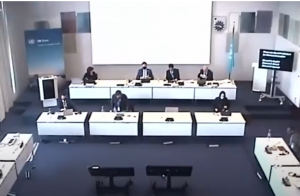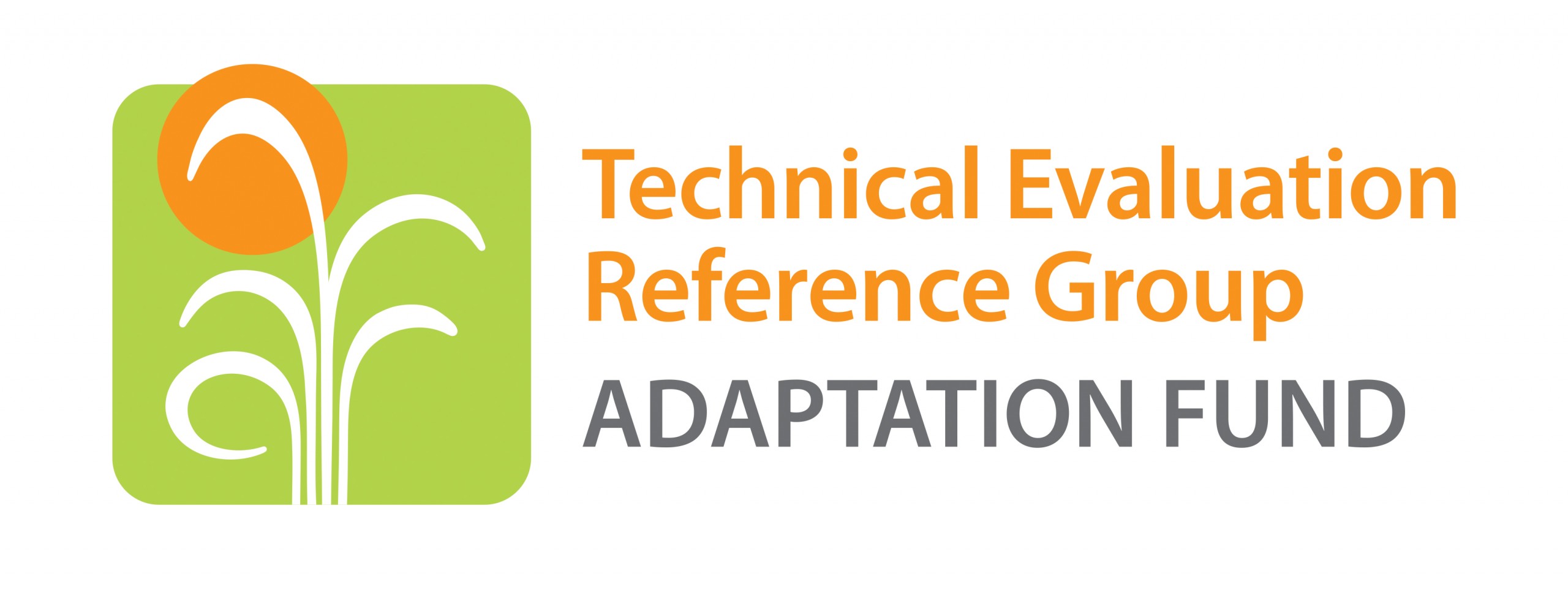[AF-TERG Press Release] May 26, 2022
New Evaluation Policy approved by Adaptation Fund Board aims to Foster Knowledge, Innovation and Evidence-Based Approaches
The new Evaluation Policy is set to replace the current Evaluation Framework in October 2023
Washington, D.C. (May 26, 2022) — —A new Evaluation Policy (EP) approved by the Adaptation Fund Board during its 38th meeting will enable the Fund’s evaluation function to contribute more effectively toward helping to foster the Fund’s mission, goal, and vision of helping developing countries build resilience and adapt to climate change.
The new policy will come into effect in October 2023 when it will replace the Evaluation Framework that was approved in 2011 and revised in 2012. The main changes that the new EP brings include:
- Elevating the evaluation function to a policy level and connecting evaluation to the Fund’s strategies, policies, goal, mission, and niche;
- Adding evaluation principles and criteria that are linked to the Fund’s uniqueness and aimed at strengthening the Fund’s niche;
- Encouraging utilization of evaluation evidence and lessons, evaluation capacity development and adaptive management;
- Expanding types of evaluation, which now includes non-mandatory evaluations (real-time evaluations and ex post evaluations); and
- Suggesting evaluation function budget guidelines.
Existing commitments made under the current Evaluation Framework, such as mandatory evaluations, evaluation principles and criteria, will not be impacted. During the transition period to October 2023, the Adaptation Fund’s Technical Evaluation Reference Group (AF-TERG) will work in collaboration with the Adaptation Fund Board secretariat to develop evaluation guidance documents and the capacities of Fund implementing entities to incorporate the EP into their work.
The primary benefits of the new policy include:
(i) enabling evaluation to contribute more strongly towards climate change adaptation (CCA) knowledge and innovation in the Fund;
(ii) improving the use of evaluation products to strengthen organizational performance at operational, strategic, and Fund levels;
(iii) supporting the potential of evaluations to better contribute to the Fund’s impact and wider reach;
(iv) expanding the focus of good evaluation practice from learning and accountability towards a comprehensive and broader evidence-based monitoring, evaluation and learning (MEL);
(v) and aligning evaluation with the Paris Agreement, which includes incorporating the aspirations of Nationally Determined Contributions (NDCs), building synergies between the Implementing Entities (IEs) as well as existing MEL systems and national MEL systems, and collaborating with other climate change adaptation and mitigation organizations.

38th Adaptation Fund Board Meeting in Bonn in April.
Mr. Mattias Broman, Chair of the Ethics and Finance Committee (EFC) of the Adaptation Fund Board, which oversees and supervises the evaluation function, praised the inclusiveness and rigor of the policy development process. Ms. Naima Oumoussa, a Board member who also participated in the Evaluation Policy Advisory Group, added that the process ensured that perspectives from different stakeholder groups were taken into consideration. Ms. Debbie Menezes, Chair of the AF-TERG, noted that the new EP introduces some innovative features and proposes incremental changes to the Evaluation Framework which are expected to bring significant improvements to the quality and value of evaluation to the Fund. The incremental changes include adding Fund-specific evaluation criteria and principles, increasing the number of evaluation types, and deepening learning while at the same time valuing accountability. Mr. Mikko Ollikainen, Head of the Adaptation Fund, underlined the importance of continuing to be inclusive and thorough in the subsequent process of developing and introducing evaluation guidance documents.
The development of the new policy arose from a Board request in early 2020 to review the Adaptation Fund Evaluation Framework in response to: (i) decisions, strategies and policies, and other changes made within the Fund since 2012, (ii) advancements in the wider evaluation discipline, and (iii) the urgency of climate change impacts and action, coupled with the growing understanding of the complexity of climate change adaptation. After considering the AF-TERG’s presentation of the review findings, the Board requested the AF-TERG to work in consultation with the Board secretariat and develop a high-level and strategic evaluation policy.
The Evaluation Policy was developed over three phases, which included a series of robust consultations with the Fund’s internal and external stakeholders. In addition, the AF-TERG established an Evaluation Policy Advisory Group, led by Mr. Mutizwa Mukute, an AF-TERG member, with balanced representation from key stakeholders of the Fund including national implementing entities (NIEs), regional implementing entities (RIEs), multilateral implementing entities (RIEs), the Adaptation Fund CSO network, the Board, and the Board Secretariat. It met six times during the course of developing the evaluation policy.
More details about the EP, its implications, and its implementation will be provided when the Fund officially introduces the approved Policy to its stakeholders.
ABOUT THE AF-TERG
 The Technical Evaluation Reference Group of the Adaptation Fund (AF-TERG) is an independent evaluation advisory group accountable to the Adaptation Fund Board, established in 2018 to ensure the independent implementation of the Fund’s evaluation framework. The AF-TERG, which is headed by a chair, provides an evaluative advisory role through performing evaluative, advisory and oversight functions. The group is comprised of independent experts in evaluation, called the AF-TERG members. A small AF-TERG secretariat provides support for the implementation of evaluative and advisory activities as part of the work programme.
The Technical Evaluation Reference Group of the Adaptation Fund (AF-TERG) is an independent evaluation advisory group accountable to the Adaptation Fund Board, established in 2018 to ensure the independent implementation of the Fund’s evaluation framework. The AF-TERG, which is headed by a chair, provides an evaluative advisory role through performing evaluative, advisory and oversight functions. The group is comprised of independent experts in evaluation, called the AF-TERG members. A small AF-TERG secretariat provides support for the implementation of evaluative and advisory activities as part of the work programme.
While independent of the operations of the Adaptation Fund, the aim of the AF-TERG is to add value to the Fund’s work through independent monitoring, evaluation and learning: www.adaptation-fund.org/about/evaluation/
Attachments
| Attachment | Type | Size |
|---|---|---|
| AF-TERG Press Release, May 26, 2022 | 158 KB |



